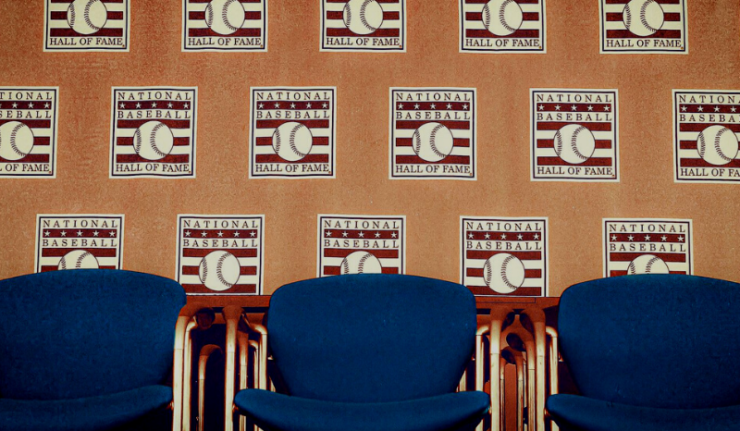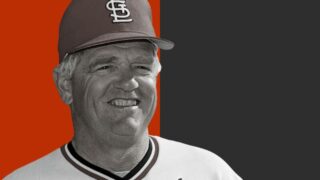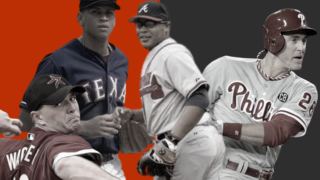On Friday, the National Baseball Hall of Fame announced a restructuring of the process for electing players who are no longer eligible on the Baseball Writers ballot (or what most fans consider the primary ballot).
The Hall is paring down the committees for electing “veterans” to two, and establishing a schedule for three rotating elections within that framework. I can’t help but think that the decision is an effort to slow the number of people elected via the special committees process.
The new committees will be called the Contemporary Baseball Era (1980 onward) and the Classic Baseball Era (for players, managers, and others from pre-1980). Additionally, the Contemporary Baseball Era will split their ballot for non-player types, such as managers, executives, and umpires. That means every three years one of the ballots will be considered.
In recent years, the elections of Jim Kaat, Harold Baines, and Jack Morris has led to controversy from some baseball fans. All three of those former players were elected by special committee after failing to earn enough votes by the baseball writers. Even the special committee selections of Gil Hodges, Ted Simmons, and Lee Smith, each of whom had plenty of supporters, came under scrutiny. This year’s group of inductees includes six names from the special eras committees.
Is the Baseball Hall of Fame and Museum leadership reacting to that surge of inductees via the “back door” and moving to slow that number? Has there been pressure from Hall of Famers, who usually prefer the fraternity be exclusive? All we can do is speculate at this time.
Special Committees Have Elected Many In Recent Years
45 new members have been elected to the Baseball Hall of Fame in the last ten elections, with 21 of them coming from the Eras Committees. Contrast that with only nine people being elected via Eras or “Veterans” committees in the ten years prior to that (not counting the deserving players chosen by a special committee to consider negro leagues players and figures).
The flow of people getting wall space in the Plaque Gallery in Cooperstown has increased in recent years. The Hall of Fame Eras Committees elected 14 people in the last five elections (2017 to 2022, minus 2020 when the COVID-19 pandemic canceled the process). That’s nearly three people elected each election cycle, which has swelled membership in the Hall of Fame to 340 former players, managers, pioneers, umpires, and executives. For some baseball fans that may be too many, too quick.
What The Election Changes Mean
The elimination of the multi-tiered Eras Committees is a good decision. Who understood what the difference was between the “Modern Game” committee and the “Today’s Game” committee? And fans are mostly interested in players from the last 25 years or so when they debate the merits of the Hall of Fame election process. Making the process more simple was a good idea by the Hall of Fame Board of Trustees.
I’ve rarely criticized the Hall of Fame. I have tremendous respect for the institution and still know many people who work there from my time on the staff. I think the Baseball Hall of Fame and Museum is the best one in sports, and for the most part it makes the right choices on the elections and other issues. But changing the election process once again doesn’t look great. While I support simplifying the committees, the constant change is not a good aesthetic. It seems like the Hall of Fame leadership (or maybe the membership) wants elections via the “second chance” committees to be more of a trickle than a stream. It wasn’t too long ago that some were criticizing the committees for not electing enough people (remember when Ron Santo missed out during his lifetime?)
If the Hall wants a more manageable flow of “old time” and recent BBWAA-rejected candidates to be elected, why even let committees vote? Why not appoint an expert panel and select players based on scholarly and historic discussion and debate? Why leave the process in the hands of an ever-evolving roundtable of former executives and inductees and broadcasters?
The problem with the “second chance backdoor” election method is that for every deserving candidate (like Santo, Alan Trammell, and Minnie Miñoso), there are several guys like Baines, Kaat, and Bud Selig, who seem like crony selections.
Does the Hall of Fame really need Jacob Ruppert, Hank O’Day (an umpire), and Deacon White added decades after their time when they all seem to rest on the margins of “greatness”? Does the Hall want more guys like Baines, who rates well in raw counting stats, but only led his league in one category on one occasion in 22 years?
Why Kaat or Hodges now? Are they reactions to the “sabermetric” picks of Simmons and Trammell after those players were rejected by the writers? Is the Hall worried that some members of the committees are trying to “get back” at the emphasis on advanced analytics in the modern game, a nuanced methodology that makes the candidacies of Andruw Jones and Scott Rolen controversial to traditionalists? If a Bobby Abreu gets in, does that mean another Baines has to even things out?
Another outcome of the changes announced today is that players who recently fell off the BBWAA ballot must now wait one additional year before being eligible for the Eras election cycle. (The Hall has clarified that the one-year wait will start in 2023, which means Barry Bonds, Roger Clemens, and Curt Schilling can all be on an Era ballot in December). Given the three-year rotation of Pre-1980, Post-1980 Players, Post-1980 Others, the rule change means some players who fall off the writers ballot in the future may wait as many as three years before they are considered by the Eras Committee. Maybe that’s a good thing, but maybe it’s also a way for the Hall of Fame Board of Trustees to dodge the controversy that alleged or confirmed steroid users bring with them to their candidacy?
I think the time has come for the Hall of Fame to stabilize the Eras Committee elections. Implementing changes every few years, which some may see as basically a reaction to how many (or how few) people the committee is electing, does not engender trust in the Hall of Fame election process. Let’s arrive at a system and stick with it, and let’s allow more qualified (and less biased) experts to make the choices on these candidates.





Really interesting article. I think the comment about “traditionalists” disliking the election of the eminently qualified Trammell and Simmons is absolutely right. The upcoming(?) election of Scott Rolen will further antagonize the latter group. But heads will explode when the steroids-tainted A-Rod is selected by the writers.